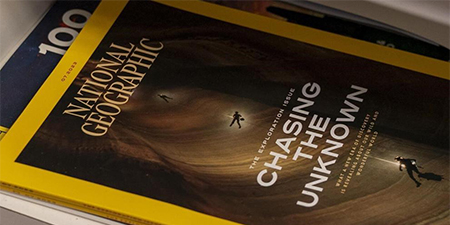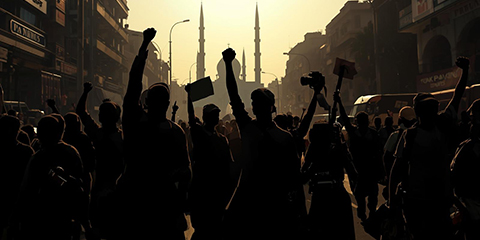End of an Era: National Geographic magazine to cease publication
JournalismPakistan.com | Published 2 years ago
Join our WhatsApp channel
In a surprising turn of events, National Geographic, the iconic magazine known for its stunning photography and in-depth exploration of the world's wonders, has announced the closure of its print edition next year. The decision marks the end of an era for one of the most celebrated publications in history.
National Geographic Magazine, founded in 1888, has been a source of inspiration and knowledge for generations of readers. Its distinctive yellow-bordered cover and fascinating articles have transported readers to the farthest corners of the Earth, highlighting the beauty of nature, the diversity of cultures, and the pressing environmental issues facing our planet.
The magazine shut down its print edition amidst the digital revolution, significantly transforming the publishing industry. With the rise of digital media and the increasing popularity of online platforms, National Geographic has been grappling with declining print subscriptions and the need to adapt to changing reader preferences.
Susan Goldberg, the editor-in-chief of National Geographic, expressed her sadness over the decision, stating, "The closure of the print edition is a deeply emotional moment for all of us at National Geographic. We have been privileged to share the world's stories with our dedicated readers for over a century."
Goldberg emphasized that the magazine's digital presence will continue to thrive, with a renewed focus on expanding its online platform and engaging with readers through various digital channels. National Geographic's online presence has been steadily growing, and the organization intends to invest in innovative ways to deliver its rich content to a global audience.
While the magazine's print edition may be bidding farewell, National Geographic's commitment to its core mission remains unwavering. The organization will continue its scientific research, exploration, and storytelling through its digital outlets, including its website, social media platforms, and multimedia productions.
The closure of the print edition will undoubtedly leave a void for longtime National Geographic enthusiasts and collectors who cherished the physical copies as treasured artifacts. However, the organization assures its loyal readers that transitioning to a digital-first approach will allow for greater accessibility and reach, enabling National Geographic's captivating stories to inspire and educate even more people worldwide.
National Geographic's decision to cease publication of its print magazine reflects the changing media consumption landscape. As National Geographic bids farewell to its print edition, its legacy as a pioneering force in exploration and storytelling will undoubtedly endure, reminding us of its remarkable impact on our understanding of the world we inhabit.
Photo: APP

























